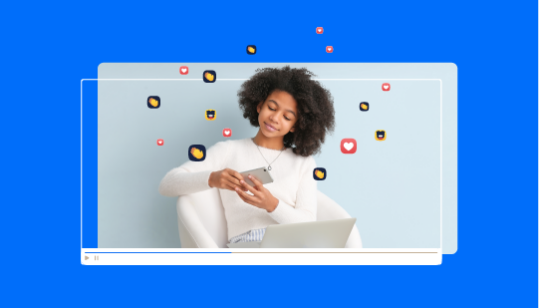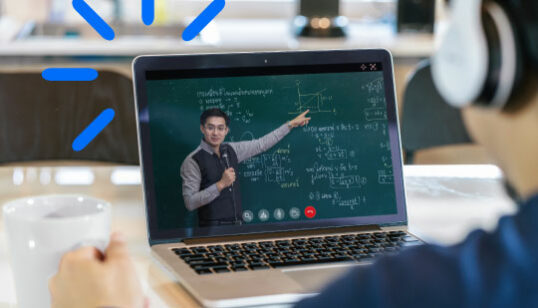

Houston Community College: Fueling Student Learning with Video for 12+ Years
The Goal
A leader in using media to enhance teaching and learning, Houston Community College needed a single solution that would support a wide array of use cases—including both synchronous and asynchronous online learning, video creation, and media management—for its nearly 100K students and 4000+ faculty and staff.
About Houston Community College
Established in 1971, Houston Community College is one of the largest institutions of higher learning in the United States. HCC enrolls nearly 100,000 students annually across 23 campuses. Known for its open enrollment policies, which do not require proficiency in English, HCC’s student body is as diverse as the community it serves—and it includes a cohort of over 5000 international students each year.
-
100K+Students Served
-
50%of All Classes are Delivered Through Kaltura Virtual Classroom
-
12+Year Partnership
The Partnership
Prioritizing Media Literacy in Higher and Continuing Education
Looking to empower students and prepare them for a professional world that’s increasingly digital, HCC makes media a central curricular focus.
The integration of media into the HCC student experience is broad. Nearly half of the school’s 100K students have at least one online component to their classes, with many taking entire classes remotely. Both synchronous and asynchronous learning is powered by Kaltura, which is integrated seamlessly into HCC’s LMS, Canvas.
Kaltura Virtual Classroom supports interactive, on-camera online instruction at HCC with an environment that’s built to drive student learning outcomes. For asynchronous learning, Kaltura is directly connected to HCC’s LMS (with automatic uploading of Kaltura Virtual Classroom recordings) and powers HCC’s media management platform—called EduTube—so students can access video and audio content with a click for anywhere learning.
When it comes to video creation, Kaltura Capture equips both faculty and students with easy-to-use tools. Educators can record lectures, demos, or video messages to integrate into course content. Similarly, students can publish video responses or create video presentations with tools that are embedded directly into the LMS, so no additional software needs to be downloaded.
With a diverse student body—including students who do not speak English upon matriculation— universal instructional design and accessibility is core to Houston Community College’s mission. Kaltura Captioning & Enrichment Services (REACH) allows users to quickly caption, transcribe, chapter, audio describe, or translate videos to create universally accessible content.
A Leader in Innovation Tech
Unique to Houston Community College is a heavy focus on emerging technologies, demonstrated strongly by its XR (Extended Reality) Lab. When the lab was founded by Rubén Durán in 2015, it was the first virtual reality lab in Texas.
The XR Lab is a space where students from any discipline can engage in immersive learning. For example, biology students use the lab to interact with 3-D visualizations of organs. Virtual reality allows them to “reach” inside the human body in a way that material models cannot.
HCC’s Art & Design students use the XR Lab to digitally document their work, creating virtual portfolios that allow them to disseminate their work globally. Students in the Fashion program use the lab’s tech to scan garments they create and then produce digital fashion shows that can be attended from anywhere in the world (no VR headset required). As they build these shows, students use Kaltura to integrate on-camera video footage narrating their work, which is broadcast directly into the virtual space.
All the media students and faculty produce in the XR Lab feeds into HCC’s media management platform—powered by Kaltura—generating a robust repository of content that can be integrated into class presentations, course curricula, digital portfolios, or external communications.
Faculty-Led Media Adoption
The COVID pandemic accelerated many media trends, and at Houston Community College it can be credited with catalyzing the mass adoption of digital teaching and learning tools by a majority of faculty.
As a community college, HCC has many technical programs—like welding, sewing, and air conditioning—that traditionally require mostly hands-on training. When the college went temporarily remote in 2020, administrators knew they had a tight timeframe during which to bring exclusively in-person faculty up to speed on the school’s educational tech.
Using Kaltura Virtual Classroom, 41 HCC Kaltura power users established a Faculty Video Lounge, which served as an emergency digital collaboration space and informal training room for all HCC faculty. In just 2 weeks’ time, faculty members trained their colleagues on the full Kaltura Video Cloud of Education, ensuring that students’ educational experiences would not be disrupted.
Today, even as in-person classes have resumed at HCC, the vast majority of faculty uses Kaltura technology and media as a hybrid teaching tool to enhance students’ education.



